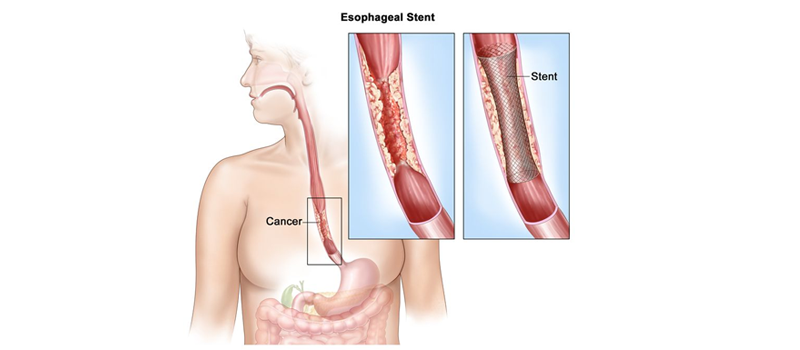
Esophageal cancer is a malignancy that affects the esophagus, the muscular tube responsible for carrying food and liquids from the mouth to the stomach. It is a relatively rare form of cancer but is associated with high mortality rates due to its aggressive nature and often late-stage diagnosis. Understanding the risk factors, symptoms, diagnosis, and treatment options for esophageal cancer is crucial for improving outcomes and quality of life for affected individuals.
Several factors may increase the risk of developing esophageal cancer, including:
Esophageal cancer may not cause noticeable symptoms in its early stages, but as the disease progresses, individuals may experience:
If esophageal cancer is suspected based on symptoms or risk factors, diagnostic tests may be performed, including:
The treatment approach for esophageal cancer depends on several factors, including the stage of the cancer, its location, and the patient's overall health and preferences. Treatment modalities may include:
Surgery may be performed to remove the cancerous portion of the esophagus (esophagectomy) and nearby lymph nodes. In some cases, a portion of the stomach may also be removed and used to reconstruct the esophagus.
Chemotherapy uses drugs to kill cancer cells or stop them from growing. It may be used before surgery (neoadjuvant therapy) to shrink tumors, after surgery (adjuvant therapy) to kill any remaining cancer cells, or as palliative treatment to relieve symptoms and improve quality of life.
Radiation therapy uses high-energy beams to target and destroy cancer cells. It may be used alone or in combination with surgery and/or chemotherapy to treat esophageal cancer, particularly in cases where surgery is not an option or to improve the effectiveness of other treatments.
Targeted therapy drugs work by targeting specific molecules or pathways involved in the growth and spread of cancer cells. These drugs may be used in combination with other treatments for advanced or recurrent esophageal cancer.
Immunotherapy harnesses the body's immune system to recognize and attack cancer cells. It may be used in certain cases of esophageal cancer, particularly metastatic disease, to improve treatment outcomes and prolong survival.
The prognosis for esophageal cancer varies depending on factors such as the stage of the cancer at diagnosis, the effectiveness of treatment, and the individual's overall health. Early detection and treatment offer the best chance for favorable outcomes, highlighting the importance of regular screening and prompt medical attention for symptoms suggestive of esophageal cancer.
While esophageal cancer can be challenging to treat, advancements in diagnostic techniques, surgical procedures, and targeted therapies have improved survival rates and quality of life for many patients. Ongoing research efforts aimed at understanding the underlying mechanisms of esophageal cancer and developing novel treatment strategies offer hope for further advancements in the field.
Esophageal cancer is a serious and potentially life-threatening disease, but with early detection and appropriate treatment, outcomes can be improved. By understanding the risk factors, recognizing symptoms, undergoing regular screening, and exploring the available treatment options, individuals can take proactive steps to manage their risk of esophageal cancer and improve their overall health and well-being.
It is essential for individuals with symptoms suggestive of esophageal cancer to seek prompt medical evaluation and consultation with healthcare professionals specializing in the diagnosis and treatment of gastrointestinal malignancies. Through multidisciplinary care and personalized treatment plans, patients with esophageal cancer can receive comprehensive care tailored to their unique needs, with the ultimate goal of achieving the best possible outcomes and quality of life.